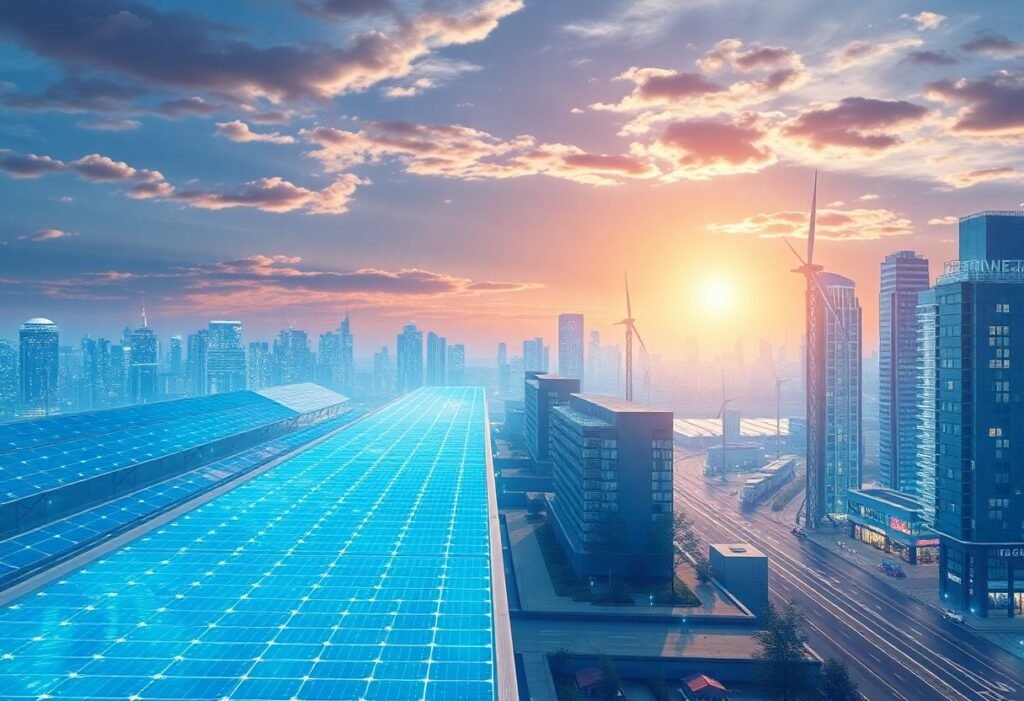The future of renewable energy in smart cities is essential to understanding how urban innovation can reshape our planet. By harnessing clean energy sources, cities can lead the way toward a sustainable future while encouraging economic growth and technological advancement.
Innovative Technologies Driving Renewable Energy
The landscape of renewable energy is evolving rapidly. Technologies such as solar panels, wind turbines, and energy storage systems are becoming increasingly efficient and cost-effective. Solar energy applications in buildings are now common, significantly reducing energy costs and carbon footprints. Furthermore, advancements in battery storage allow excess energy generated during sunny and windy days to be stored for later use. Cities leveraging these technologies can create sustainable energy solutions that align with the smart city concept, integrating IoT solutions for efficient energy management.
The Role of Smart Grids in Energy Management
Smart grids are transforming the way cities manage energy consumption. These advanced electrical grids utilize digital technologies to monitor and control energy flows, optimizing the delivery of electricity from various renewable sources. With the integration of artificial intelligence, smart grids can predict energy demands, enabling cities to adjust supply accordingly, thus ensuring a stable energy supply while maximizing the use of renewables.
The Economic Benefits of Renewable Energy in Urban Areas
Investing in renewable energy technologies not only protects the environment but also stimulates local economies. By creating jobs in sectors such as installation, maintenance, and R&D for clean energy initiatives, cities can reduce unemployment rates while fostering innovation. Moreover, cities that embrace renewable projects tend to attract eco-conscious businesses and investors, bolstering economic growth.
Community Engagement in Renewable Energy Projects
For successful implementation of renewable energy projects, community engagement is crucial. Cities can involve local populations in decision-making processes and encourage the adoption of green technologies. Programs aimed at education and awareness about the benefits of renewables build public support, which is valuable for the sustainability of energy solutions. Involving citizens can lead to innovative ideas and approaches tailored to specific community needs.
Global Collaborations in Renewable Energy Innovation
As cities around the world strive to improve their sustainability through renewable energy, international collaborations have become increasingly important. By sharing knowledge and resources, cities can accelerate innovation in clean technologies. Global partnerships focusing on research and development aim to tackle shared challenges such as climate change and resource management, setting a foundation for future advancements.
Challenges Ahead for Renewable Energy in Smart Cities
Despite significant progress, several challenges remain to fully realize the potential of renewable energy in smart cities. Issues such as infrastructure costs, regulatory hurdles, and public resistance can impede the deployment of innovative solutions. Additionally, the need for reliable energy storage technologies remains a critical barrier. Overcoming these challenges requires collaborative efforts between governments, businesses, and communities to foster an ecosystem that supports sustainable practices.
Disclaimer:
The information provided in this article is for educational purposes only and should not be considered as professional advice.





















